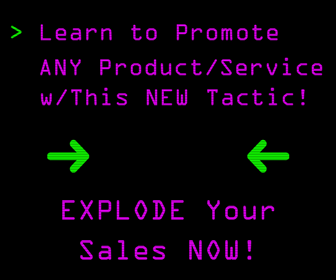The last few years the freelancing industry has seen quite a tremendous growth. This is good and bad. It is terrific more people are making it out on their own. It shows us we can do what ever we put our minds to and should create more custom solutions for individuals in the process. On the other hand it make it much more competitive to find a job if you are one of these freelancers. These freelancers experience and specialties will vary from 20+ years to newbies.
Here is some more data on how to get in on the game even if you have no experience:
With freelance work being such an enticing prospect, no one would blame you for giving it some serious thought. However, a common issue is simply not knowing how to start. Fortunately, building a successful freelancing career is easier than it seems — just follow the steps below.
1. Choose Your Craft: Just about everything can be outsourced these days. That's why there's a strong likelihood that the skills on your résumé contain one or more freelancing opportunities. You may be required to think outside of the box — we're not all graphic designers or programmers. However, you may find that your “secondary” skills can offer up freelancing opportunities. For instance, if you are a strong writer, then you have the potential to develop a freelance writing business. Don't be paralyzed by a preconception that you do not have the necessary skills or experience — you would be surprised how little experience you need in order to get started. A little faith in your abilities will take you a long way.
2. Create a Brand: If you plan to succeed in the world of freelancing, you will need to create a strong brand that sets you apart from the competition. Your brand is your identity (i.e. your website, blog and social media accounts) and it should clearly communicate your unique selling proposition — what you do that makes you special. With that in mind, you should narrow down your focus to a specific industry. For instance, as a graphic designer you might choose to do branding work for digital startup businesses only. This form of specialization will make you far more attractive to a specific set of prospective clients and give you a greater chance of success. You can try to cater to all and sundry, but you will probably only provoke indifference.
3. Build a Portfolio and Source Testimonials: The world of freelancing lacks the red tape of the corporate world. Many prospective clients are not concerned with qualifications; they simply want to see what you have done in the past and judge whether it is the right fit for them. Therefore, if you are good at what you do and can demonstrate your skill through a quality portfolio and positive client testimonials, you have every chance of success. The conundrum, however, is in building a portfolio without experience. So don't be afraid to do pro bono work for the right clients when you are first starting out. The free work you do at this stage can ultimately be priceless when it clearly communicates your worth to future potential clients via an extensive portfolio and glowing testimonials. Also, offering your services at no cost is a gentle introduction into the world of freelancing where you do not feel the pressure of having to deliver a service of requisite value.
4. Start Pitching: You should only seek paying clients when you are able to demonstrate your abilities (and your reputation) with a quality portfolio and testimonials. Once you have done so by working on pro bono jobs, it's time to start pitching. But whom should you pitch? Well, if you branded yourself correctly then you should know exactlywhom to pitch. By having such a narrow focus, potential clients are far more likely to take you seriously than if you offered a generic service. Businesses want to work with freelancers who seemingly came into existence to serve them specifically — you can create this illusion through specialization. Potential clients can be found everywhere: from Google to social media to your doorstep. The possibilities are endless.
5. Play the Odds: Ultimately, securing freelance work is a numbers game — the more prospective clients you contact, the more likely you are to find work. That is the equation you should keep in mind. If you have a reasonable skill set and create a quality brand, there is no reason why you cannot succeed in the world of freelancing like so many others have before you.
How did you get into freelancing and what avenue did you take to get gain attention online and bring in more work?
Image Source: Lost in Spain on Flickr
CHALLENGE Yourself to Profit!
Free Download: Build Your Profit-Generating Online Business With This Free Blueprint
Sign Up, follow the easy steps and You'll get the tactics, strategies & techniques needed to create your online profit stream. It's free!



